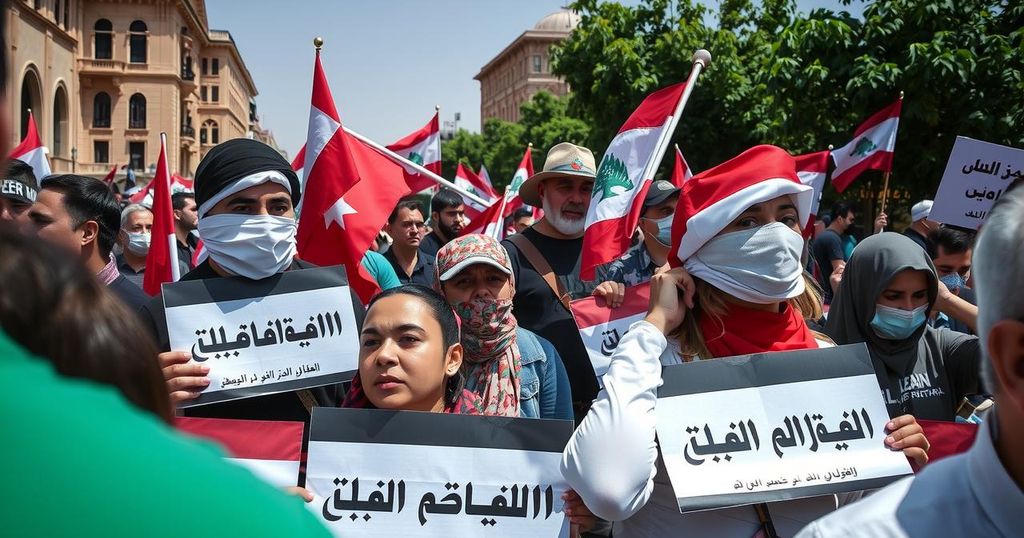Protesters in Tripoli, Lebanon, demanded the release of Islamists imprisoned for fighting in the Syrian civil war, reflecting ongoing societal tensions and calls for fair legal processes. Rights advocates are pushing for solutions as Prime Minister Najib Mikati suggests a parliamentary decision on amnesty is needed.
On Sunday, a significant protest took place in Tripoli, Lebanon’s second-largest city, where hundreds gathered in Nour Square to demand the release of Islamists who were detained during the Syrian civil war. These detainees, consisting predominantly of Lebanese nationals, had crossed into Syria to join rebel and jihadist forces opposing President Bashar al-Assad since the conflict erupted in 2011. Ahmad al-Shimali, a participant in the demonstration, expressed the desire to pressure the Lebanese authorities to free all Islamist prisoners, emphasizing their intent to support the Syrian revolution.
The protests highlight a growing campaign by rights advocates seeking fair trials for individuals accused of Islamist ties, many of whom remain imprisoned without trial for extended periods. Prime Minister Najib Mikati had previously indicated that the issue needed to be definitively addressed, contingent upon a parliamentary decision regarding a general amnesty. The roots of this unrest can be traced back to the sectarian tensions in Tripoli, particularly the longstanding conflict between the predominantly Sunni district of Bab al-Tebbaneh and the Alawite neighborhood of Jabal Mohsen, reflecting the broader ramifications of the Syrian conflict on Lebanese society.
The protests in Tripoli are situated within a complex historical context rooted in the Syrian civil war, which began in 2011 as a struggle against Bashar al-Assad’s regime. Many Lebanese individuals ventured into Syria to assist rebel forces, only to face legal repercussions upon their return. This deeply fragmented situation has been exacerbated by sectarian divisions within Lebanon, particularly evident in Tripoli, where clashes between Sunni and Alawite communities have occurred. Human rights organizations have consistently advocated for the fair treatment of those accused of Islamist extremism in Lebanon, calling for transparency and legal due process.
The protest in Tripoli signifies a critical moment for the families of Islamist detainees and highlights longstanding grievances regarding justice and accountability in Lebanon. As demonstrators seek the release of individuals detained for their involvement in the Syrian conflict, the call for amnesty and comprehensive legal reforms resonates amidst the backdrop of ongoing sectarian tensions. Such developments may influence Lebanon’s sociopolitical landscape as calls for justice continue to rise.
Original Source: www.al-monitor.com






